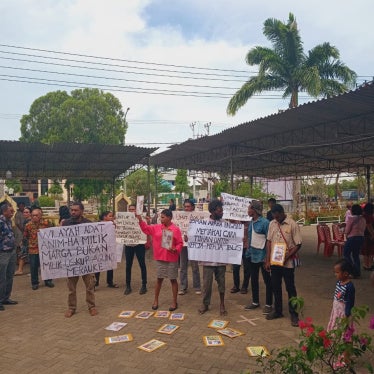Human Rights Watch is an international non-governmental organization that monitors and reports on the human right situation in over 90 countries around the world, including Japan. We have specialist teams that work on thematic issues, including children’s rights.
During 2012 and 2013, Human Rights Watch conducted research on the alternative care system for children in Japan, including through interviews with more than 200 people, including 32 children who were in alternative care, and 27 adults who had previously lived in alternative care arrangements. In May 2014, we published an 89-page report: "Without Dreams: Children in Alternative Care in Japan," containing recommendations for major reforms in the alternative care policies, including the current adoption and foster care system, so that as to better conform with international children’s rights law and standards, including the Convention on the Rights of the Child and the United Nations Guidelines for the Alternative Care of Children (“UN Guidelines”). In particular, the report stressed the importance of ending the unnecessary institutionalization of children and ensuring the goal of permanent solutions for children.
Human Rights Watch has also conducted research into the alternative care systems in other countries in Asia, the Americas, and Europe. Based on both our research in Japan and internationally, Human Rights Watch submits our public comment on the Ministry of Justice’s interim draft plan to review the special adoption system. Our comments respond to two proposals:
Proposal 1: “Reconsideration of the Age Requirement of Person to be Adopted Child,” and
Proposal 2.3: “Limitations on the plan to withdraw the consent of the biological parents.”
Guiding Principles:
Under the Convention on the Rights of the Child, every child has the right to be cared for by his or her parents. When the birth parents are unwilling or unable to care for a child, the UN Alternative Care Guidelines provide that government officials should ensure that the family receives counseling and social support to assist them in caring for the child. If this fails, a social worker should determine whether there are other family members who wish to take permanent responsibility for the child, and whether this would be in the best interests of the child. The Guidelines state: “Where such arrangements are not possible or are not in the best interests of the child, efforts should be made to find a permanent family placement within a reasonable period.” For each child, the government should make efforts to find an appropriate and permanent solution before making other long-term arrangements, such as foster or institutional care. Adoption is such an appropriate and permanent solution.
Recommendations:
Regarding 1: “Reconsideration of the Age Requirement of Person to be Adopted Child”
The current Japanese Civil Code limits special adoptions to children below the age of 6, with some exceptions for children below the age of 8.
Of the three reforms proposed by the interim draft report, Human Rights Watch assesses option (c)—raising the age requirement to below the age of 15, with some exceptions—to be the best.
However, Human Rights Watch believes that adoption should be an option for all children under 18, not only for the children below age of 15. The standard for whether to approve an adoption is that it is in the best interest of the child, considering the importance of ensuring children a stable home and of meeting their basic need for safe and continuous attachment to their caregivers (UN Guidelines, article 12). Although we recognize that for some older children, alternatives to adoption may be in the best interest of the child, setting a cut-off age for access to adoption appears arbitrary, and in many instances will be contrary to the best interest of the child. We therefore recommend that all children under the age of 18 should be eligible for adoption.
Regarding 2.3: Limitations on the plan to withdraw the consent of the biological parents”
Under the current system, the family court is required to make two different determinations in a single unified procedure: first, that a child meets the criteria for special adoption, even if it is contrary to the objection of the child’s birth parent or parents; and second, that a specific potential adoptive parent who has completed a six-month probationary period caring for the child, is compatible and suitable. Moreover, under the existing system, only the potential adoptive parent can bring this application before the family court.
The current system can create a disincentive for potential adoptive parents to agree to care for a child, due to a fear that after the probationary period the court could find that the child is not eligible for adoption.
Human Rights Watch therefore supports proposal (a) to reform this system, by separating the current family court ruling into two steps: first, the decision on the eligibility for special adoption, and second the compatibility of the proposed adopted parents. The first step can therefore occur prior to the child being placed for a probationary period with a prospective adopted period. Moreover, proposal (a) would give the head of the child guidance center standing to bring these matters to the court, in addition to the prospective adoptive parents.








